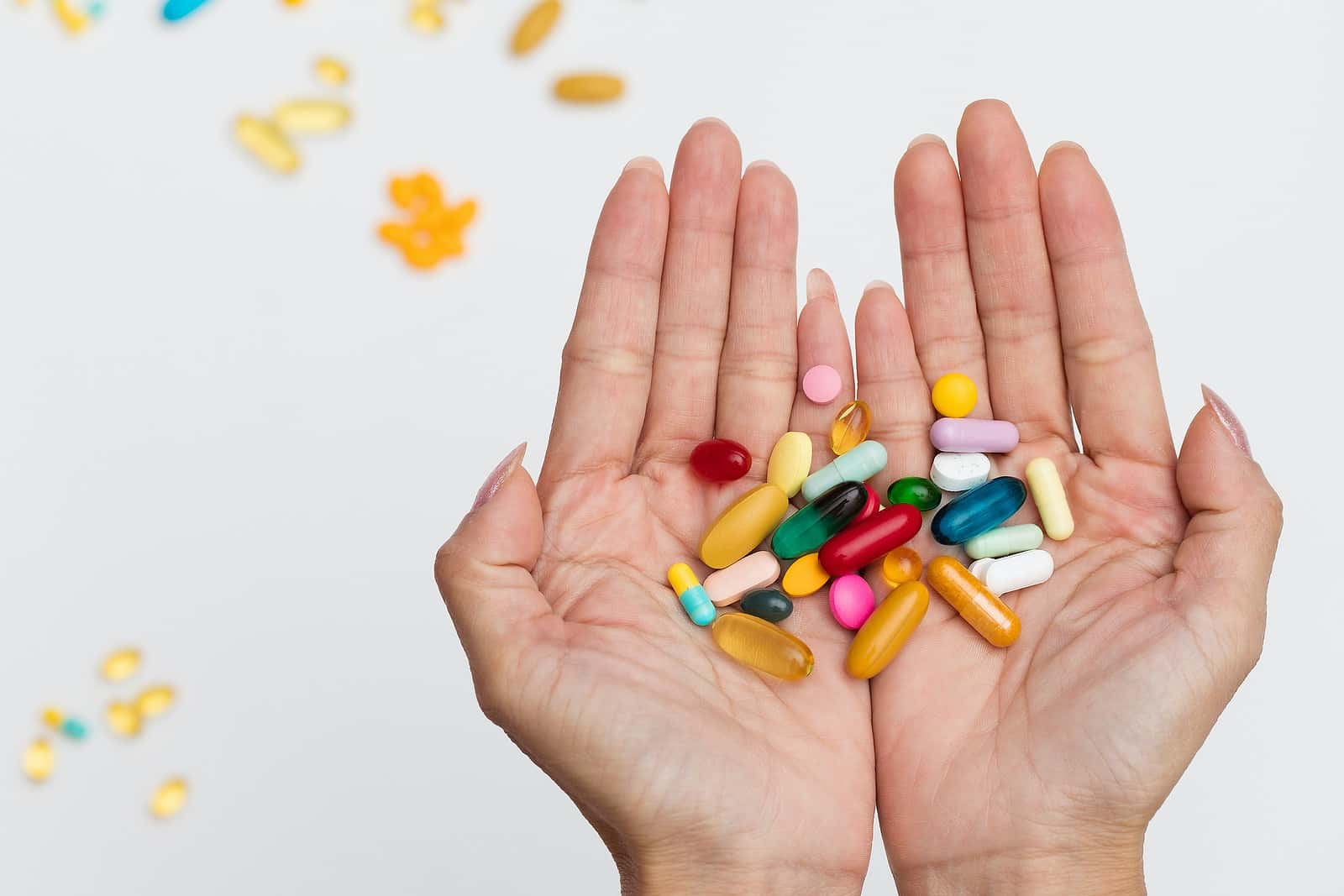
How Can You Combine Supplements, Herbs and Medicines Safely?
This week, two pharmacists describe why you should check with a pharmacist about possible problems when you combine supplements, herbs and medicines. In some cases, a supplement might interfere with your prescription drug. In other situations, an herb might slow metabolism of the medicine and increase the possibility of side effects. It’s better to know which pills don’t get along well.
You could listen through your local public radio station or get the live stream at 7 am EDT on your computer or smart phone (wunc.org). Here is a link so you can find which stations carry our broadcast. If you can’t listen to the broadcast, you may wish to hear the podcast later. You can subscribe through your favorite podcast provider, download the mp3 using the link at the bottom of the page, or listen to the stream on this post starting on April 7, 2025.
Getting Information on Supplements & Herbs:
When you have a question about supplements or herbs, you probably go to the web for answers. But while there is plenty of information out there, not all of it is reliable. We start this episode by talking with a pharmacist who does research for one of the sites we use as a favorite resource, Examine.com.
The site has long provided information on what a product is supposed to do and how well it might do that thing. It also offers information on dosing and on quality. For example, if you look up turmeric, you’ll learn that Meriva and BCM95 are standardized extracts that have been used in a number of randomized controlled trials.
Now, Examine is going beyond efficacy and looking at safety. Because there is less information available about safety, even for medications, this has been more challenging. We especially appreciate that the summaries are succinct and easy to understand and that the statements are supported by peer-reviewed research. Checking Examine.com is a good place to start learning about potential incompatibilities among supplements, herbs and medicines you are taking.
What Does Grapefruit Have to Do with It?
We recognize that grapefruit is not an herb or a supplement. It is certainly not a medication, although it is a great source of vitamin C and regular consumption of grapefruit can help control cholesterol (Metabolism, July 2012). Nonetheless, it is important to our topic, because scientists discovered a potent interaction between grapefruit juice and certain prescription drug many decades ago (Lancet, Feb. 2, 1991).
Although grapefruit inhibits the CYP3A4 enzyme that metabolizes many medicines, it is not the only plant product that can affect them. This was a wake-up call for us and for many health professionals to pay attention to interactions among supplements, herbs and medicines. Like grapefruit, both ginger and berberine inhibit CYP3A4. St. John’s wort, on the other hand, induces the enzyme, which means that the target medication may be less effective. If it is an oral contraceptive or a drug to prevent transplant rejection, you need to know that!
How Pharmacists Can Help:
Pharmacists stand ready to help people review their supplements, herbs and medicines to see if there are potential interactions, redundancies, adverse reactions or other problems. Technically, everyone on Medicare is entitled to a comprehensive medication review annually. Some pharmacists like to conduct that as a “brown bag review,” in which the patient brings in everything they are taking–OTC med, prescription drugs, herbs, vitamins and other dietary supplements–so the pharmacist gets a complete picture.
Sometimes, it may even be helpful to talk about food and drink. We already mentioned grapefruit. During this interview, we also bring up research showing that hibiscus tea (which can lower blood pressure) could interact with the cholesterol-lowering drug simvastatin (Journal of Clinical Pharmacy and Therapeutics, Dec. 2017). Hibiscus tea itself lowers cholesterol well. However, it interacts with simvastatin and reduces the drug’s effectiveness. The authors of the study advise against co-administration.
This Week’s Guests:
Katie Jantz, MS, RPh is a researcher on the staff for Examine.com.

Katie Jantz, MS, RPh
Stefanie Ferreri, PharmD, is the Henry L. Smith and James L. Olsen, Ph.D., Distinguished Professor in Pharmacy Practice. She has served as the Chair of the Division of Practice Advancement and Clinical Education at the UNC Eshelman School of Pharmacy. Her main research interests include advancing clinical practice in the community-pharmacy setting. https://pharmacy.unc.edu/directory/ferreri/

Stefanie Ferreri, PharmD
Listen to the Podcast:
The podcast of this program will be available Monday, April 7, 2025, after broadcast on April 5. You can stream the show from this site and download the podcast for free.
Download the mp3, or listen to the podcast on Apple Podcasts or Spotify.
Citations
- Dow CA et al, "The effects of daily consumption of grapefruit on body weight, lipids, and blood pressure in healthy, overweight adults." Metabolism, July 2012. DOI: 10.1016/j.metabol.2011.12.004
- Bailey DG et al, "Interaction of citrus juices with felodipine and nifedipine." Lancet, Feb. 2, 1991. DOI: 10.1016/0140-6736(91)90872-m
- Showande SJ et al, "In vivo pharmacodynamic and pharmacokinetic interactions of Hibiscus sabdariffa calyces extracts with simvastatin." Journal of Clinical Pharmacy and Therapeutics, Dec. 2017. DOI: 10.1111/jcpt.12629

